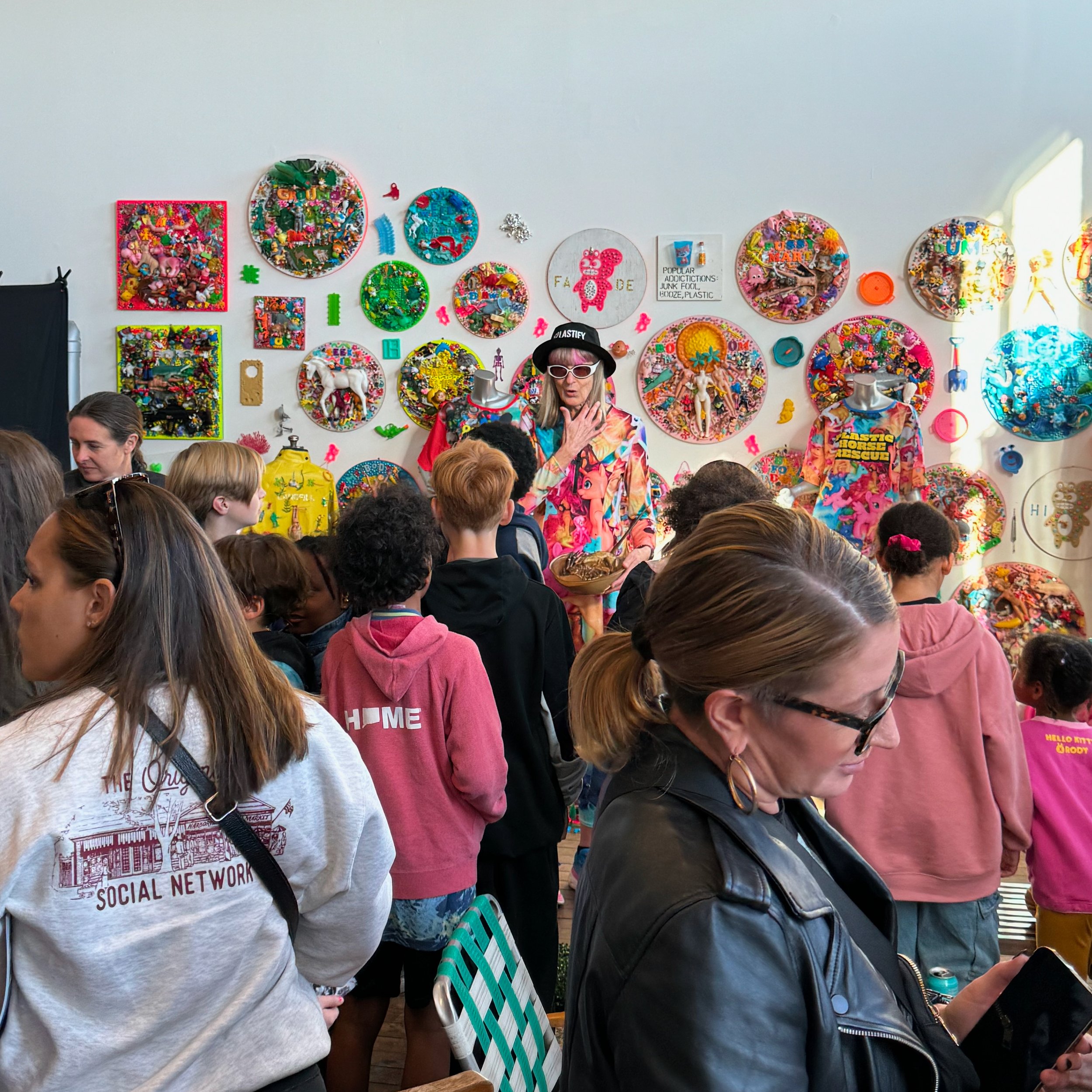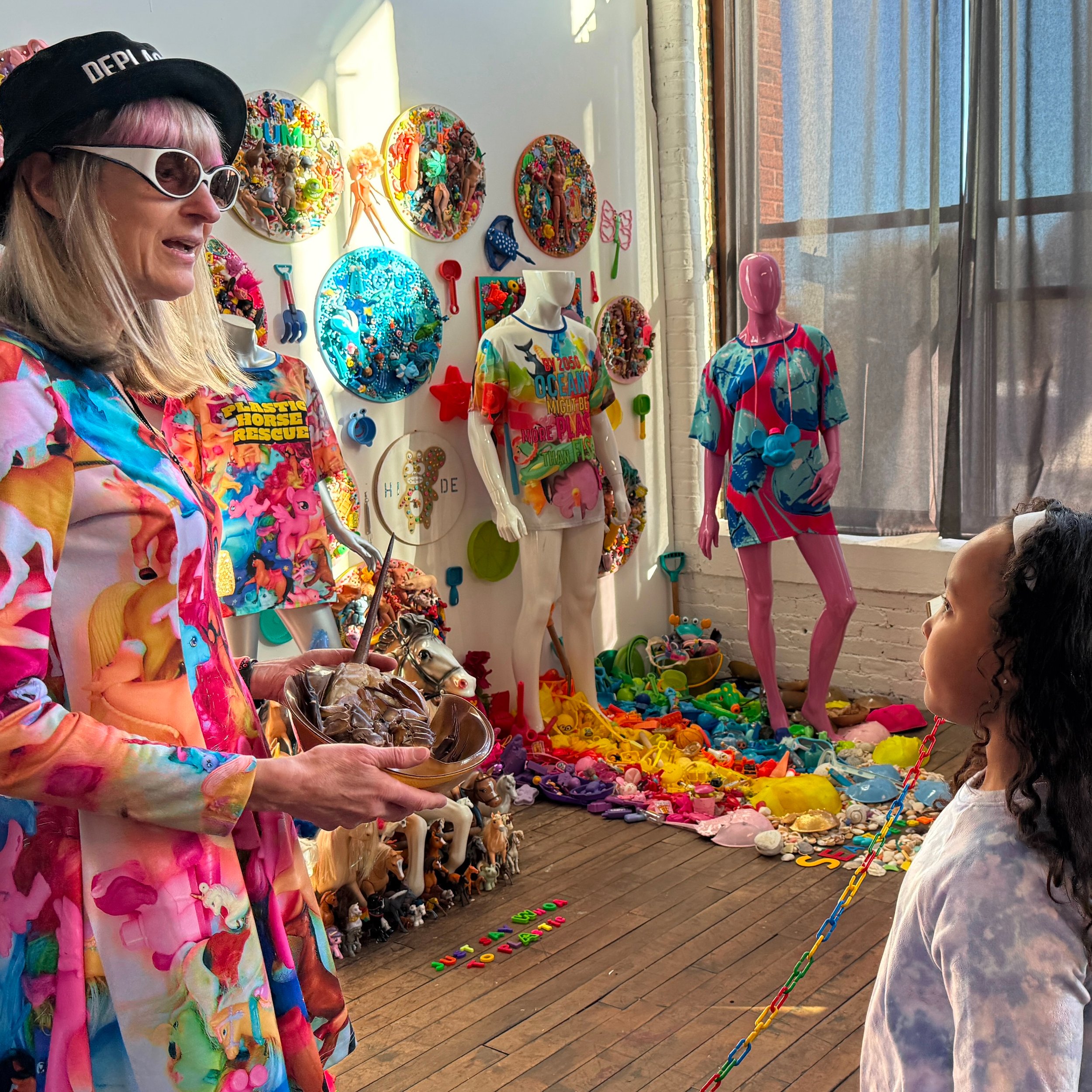
A Long Island Love Story
DEPLASIFY
DEPLASIFY
The Sound of Plastic:
Environmental Activism & Education
Through a Artists Respond grant, I expanded my ongoing initiative, The Sound of Plastic, with community art and education workshops, events, and talks centered around horseshoe crab conservation and plastic pollution at Seaside Park, an environmental justice community.
Far beyond the original scope of producing one event at the park, I provided ongoing education for children and adults at the beach during horseshoe crab spawning season, impromptu beach cleanups, and a month-long series of workshops for kids in 4th–8th grade at the Wakeman Boys and Girls Club Madison Avenue Community Clubhouse. (Including a collaborative, sustainable notebook-making session with Karl Heine of DesignerJournals.) The work culminated with an immersive reclaimed plastic and Seaside Park marine debris art installation during the Bridgeport Art Trail, where over 900 visitors traversed our studio building. The event offered interactive learning and community engagement. I then presented the project as a guest lecturer at SVA in New York.
TEST YOUR KNOWLEDGE
🤓 How many eyes does a horseshoe crab have? (Hint: 🙌🏻)
Project
The Sound of Plastic
Locations
Seaside Park, Bridgeport, CT
Funding
This iteration of The Sound of Plastic was made possible with the support of the Department of Economic and Community Development, Office of the Arts, which also receives support from the National Endowment for the Arts, a federal agency.
If you see something. Say something.
Advocating for horseshoe crabs
Speaking up leads to change. Horseshoe crabs have outlasted dinosaurs by millions of years. These “living fossils” are a keystone species for biodiversity, but due to human interference, they are now considered functionally extinct.
My photos and social media posts of spawning horseshoe crabs crushed by a beach-raking tractor spurred action by other caring individuals and the media. (While my direct communication to city officials remained unanswered.)
RESULTS
Multiple articles in the CT Post (2023)
CT DEEP investigation (2023)
A press release on CT.gov about seasonal beach grading and raking
Park staff training by Project Limulus (2024)
New informational signage (2024)
Though it was installed too high for children to read.New volunteer “spotting” program (2025)
A collaboration between the City of Bridgeport Parks and Recreation Department and Project Limulus.New digital signage at the park entrances (2025)
The 2023 CT DEEP investigation revealed that the guidelines for Connecticut's general permit for coastal maintenance had not been followed. The guidelines prohibit all beach-grading work from April 1 to September 15, and beach raking with motorized equipment or equipment that penetrates the sand more than two inches is forbidden from May 10 to July 15. These rules are specifically designed to protect reproducing horseshoe crabs and nesting and migrating shorebirds.
Location
Seaside Park, Bridgeport, CT
Year
2023–present
Media coverage
“CT DEEP looking into 'potential violations' after horseshoe crabs crushed on Bridgeport beach,” CT Post, by Brian Lockhart
“Horseshoe crabs were crushed at a CT beach. Here’s why officials are now investigating,” CT Post, by Brian Lockhart










